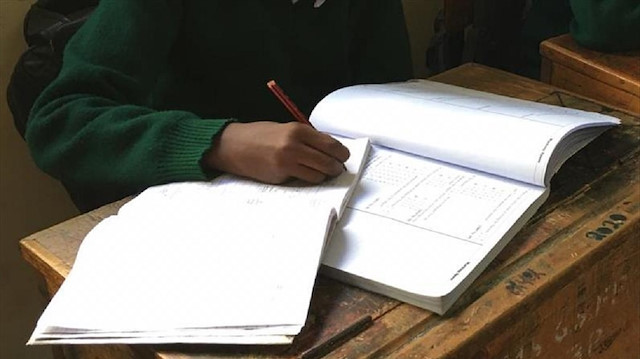
From 2014 Ebola outbreak, experts recall rise in teen pregnancies and dropouts, fear history could repeat itself
In a setback that may have long-term consequences, the prolonged closure of schools in Africa due to virus-related restrictions has hampered children’s learning, according to a UN official.
Speaking to Anadolu Agency, Rajat Madhok, the chief of communication advocacy and partnerships at the UNICEF office in Rwanda, said there are fears that schools’ prolonged closure due to coronavirus may lead students to drop out of school.
He added: “Without the safety net that schools often provide, students are more vulnerable to abuse, including child labor and sexual violence.”
Saying that it is unfortunate that children in Kigali, Rwanda’s capital, are once again missing schools, Madhok added that he is glad that educational institutions were not closed nationwide.
“We hope this is a temporary closure and the schools will be prioritized for reopening when the next review is done,” he said.
The second wave of the virus led schools that opened briefly to again close their doors, triggering further concerns.
In the Democratic Republic of Congo, all educational institutions from primary to university were recently closed. In Rwanda, schools in the capital Kigali were suspended. The Southeastern African country of Malawi also announced the closure of schools for another three weeks, and many other countries followed suit.
In 2014, when schools were closed in West Africa due to the Ebola outbreak, pregnancy rates among teenagers in Sierra Leone reportedly doubled, and many girls were unable to return to school after they reopened.
According to the World Bank, school closures in sub-Saharan Africa led to lifetime income losses of $4,500 per child – a huge sum for most people in the region.
This may also be compounded by the reduced income of the parents forced to stay at home to take care of the children, especially in households that cannot afford childcare services.
“Whenever possible, schools should remain open, especially primary and pre-primary schools, because the risk of transmission in these settings is lowest,” added Madhok.
-Online education
Former Rwanda Education Minister Silas Lwakabamba said based on national statistics, countries should generally elect to use remote learning.
“The world is now headed towards using online learning; there is no other choice. While the internet may not be affordable to all, some technologies are affordable. Students can follow lessons on radio and television,” he said.
Children at different levels in Rwanda took recourse to remote learning since the outbreak of the COVID-19 pandemic. After schools reopened for a brief period, the government once again advised schools to go back to remote learning.
Matshidiso Moeti, the World Health Organization (WHO) regional director for Africa, believes that schools have paved the way to success for many Africans, providing a safe environment for many children in challenging circumstances.
“We must not be blindsided by our efforts to contain COVID-19 and end up with a lost generation,” he urged.
“Just as countries are opening businesses safely, we can reopen schools. This decision must be guided by a thorough risk analysis to ensure the safety of children, teachers, and parents and with key measures like physical distancing put in place.”
He said this is not the first African countries have faced a pandemic, referring to the outbreak of Ebola and other diseases.
-Lack of access to hygiene
Guidelines by the WHO and UNICEF to stem the spread of COVID-19 in schools call for maintaining physical distancing, suspending school events to avoid crowding, spacing desks wherever possible, installing handwashing facilities, wearing masks, discouraging unnecessary touching, and keeping sick students and teachers at home.
But experts say most of the schools on the continent lack sufficient water, sanitation, and hygiene infrastructure.
In sub-Saharan Africa, only a quarter of schools have access to basic hygiene. Just 44% have access to basic drinking water and 47% have basic sanitation services, according to a WHO and UNICEF report.
With over 3.3 million confirmed COVID-19 cases and a death toll of nearly 81,000 as of Jan. 21, infections are still rising in the African continent, where most countries decided to reopen schools in early January. But then many of them decided to postpone the reopening and continue with online learning.
Hello, the comments you share on our site are a valuable resource for other users. Please respect other users and different opinions. Do not use rude, offensive, derogatory, or discriminatory language.
The floor is all yours.








